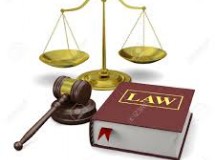In the Anglo Saxon English speaking world (and beyond in some cases) trusts are a legal structure that have developed and become more complicated and popular over time.
However trusts and offshore trusts specifically, continue being little understood and their potential use limited by this ignorance for most people.
This is generally because there is a widely held misconception that such an entity is complicated and expensive to set up.
So lets start with the basics the most straightforward definition and explanation of an offshore trust is: "The offshore trust is a legal structure but in practicality it is an arrangement whereby the owner of particular assets, (who is referred to as the settlor), passes complete legal ownership of the assets in question to a trustee.
" The trustee, (which can be a company or an individual), then becomes the administrator for the assets.
The assets inside trust are administered in accordance to the clearly defined terms in the Trust Deed, as well as in accordance with legislation of the respective jurisdiction in which the trust domiciled.
Offshore trusts are usually established in a tax efficient jurisdiction so that this 'governing law' is tax friendly.
The trustee administering the assets of the trust does for the beneficiaries of the trust - these beneficiaries can include the settlor who organized the trust in the first place although this usually reduces or negates any specific tax benefits of establishing a trust.
In most cases, the vast majority of people who decide that an offshore trust could be of benefit to them choose to create what's called a Discretionary Trust.
This entity allows the assets within it to be used for the direct benefit of any or all beneficiaries at the discretion of the trustee whilst taking into account the wishes of the settlor.
These wishes are spelled out in a document called a 'letter of wishes'.
This is created when the trust is founded - letters of wishes can be terminated or altered at any moment.
Offshore trusts are often employed by those wishing to guard their assets, make simpler the administration of their assets and their entire estate, save, defer, reduce or legally avoid taxation or protect beneficiaries' interests.
However trusts and offshore trusts specifically, continue being little understood and their potential use limited by this ignorance for most people.
This is generally because there is a widely held misconception that such an entity is complicated and expensive to set up.
So lets start with the basics the most straightforward definition and explanation of an offshore trust is: "The offshore trust is a legal structure but in practicality it is an arrangement whereby the owner of particular assets, (who is referred to as the settlor), passes complete legal ownership of the assets in question to a trustee.
" The trustee, (which can be a company or an individual), then becomes the administrator for the assets.
The assets inside trust are administered in accordance to the clearly defined terms in the Trust Deed, as well as in accordance with legislation of the respective jurisdiction in which the trust domiciled.
Offshore trusts are usually established in a tax efficient jurisdiction so that this 'governing law' is tax friendly.
The trustee administering the assets of the trust does for the beneficiaries of the trust - these beneficiaries can include the settlor who organized the trust in the first place although this usually reduces or negates any specific tax benefits of establishing a trust.
In most cases, the vast majority of people who decide that an offshore trust could be of benefit to them choose to create what's called a Discretionary Trust.
This entity allows the assets within it to be used for the direct benefit of any or all beneficiaries at the discretion of the trustee whilst taking into account the wishes of the settlor.
These wishes are spelled out in a document called a 'letter of wishes'.
This is created when the trust is founded - letters of wishes can be terminated or altered at any moment.
Offshore trusts are often employed by those wishing to guard their assets, make simpler the administration of their assets and their entire estate, save, defer, reduce or legally avoid taxation or protect beneficiaries' interests.
SHARE






































